An international network for cross-cultural research and intervention into blood-related reproductive and adolescent health and care-economies in India, Bangladesh, Ghana and the UK
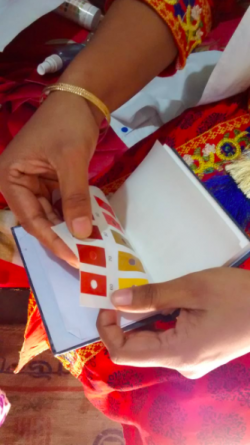
The proposed programme of work will create a unique network of scholars across the globe to ‘talk about blood’. Drawing together complementary international and national research expertise from across anthropology, psychology, education, geography, migration, medical and public health, the programme will establish a set of analytic and methodological instruments to address the social, economic and health burden of hidden blood related conditions such as anemia in lower and middle income countries. It will focus on the way blood is narrated within policy discourse as well as perceived in terms of weakness (anemia) or stigma (menstrual) in everyday family, school and livelihood contexts in poor, rural, urban and migrating populations.
The Narrating Blood international network is a CORTH project in collaboration with the Sussex Centre for Innovation and Research in Childhood and Youth (CIRCY) and the Institute for Development Studies (IDS). The network is led by Maya Unnithan, Janet Boddy, and Hayley MacGregor.
Project leads
- Prof Maya Unnithan
Department of Anthropology, University of Sussex, UK -
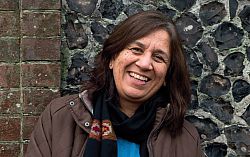 Maya Unnithan is Professor of Social and Medical Anthropology and Director of the interdisciplinary research Centre for Cultures of Reproduction, Technologies and Health (CORTH). Following on from her initial work on caste, kinship and gender politics in India (published as a monograph in 1997), her research interests have expanded to include the politics of childbearing, infertility, selective reproduction (abortion, surrogacy), blood dis-orders and sexual reproductive health rights. Maya has a special interest in critical research methods such as global ethnography. Her research projects include work on civil society understandings of human rights as applied to sexual, maternal and reproductive health in India (ESRC funded; 2009-2012). She is currently the qualitative research lead on an interdisciplinary project exploring family-making decisions, childbearing dynamics, and son preference among British South Asians (also funded by the ESRC). Drawing on long term ethnographic work in India Maya has published work on indigenous notions of reproductive entitlement; challenges to civil society translations of reproductive rights; agency and emotion in access to maternal and reproductive healthcare; and based on collaboration with colleagues at WHO, Geneva, on inclusive, plausible forms of evidence in human rights based approaches to reproductive health.
Maya Unnithan is Professor of Social and Medical Anthropology and Director of the interdisciplinary research Centre for Cultures of Reproduction, Technologies and Health (CORTH). Following on from her initial work on caste, kinship and gender politics in India (published as a monograph in 1997), her research interests have expanded to include the politics of childbearing, infertility, selective reproduction (abortion, surrogacy), blood dis-orders and sexual reproductive health rights. Maya has a special interest in critical research methods such as global ethnography. Her research projects include work on civil society understandings of human rights as applied to sexual, maternal and reproductive health in India (ESRC funded; 2009-2012). She is currently the qualitative research lead on an interdisciplinary project exploring family-making decisions, childbearing dynamics, and son preference among British South Asians (also funded by the ESRC). Drawing on long term ethnographic work in India Maya has published work on indigenous notions of reproductive entitlement; challenges to civil society translations of reproductive rights; agency and emotion in access to maternal and reproductive healthcare; and based on collaboration with colleagues at WHO, Geneva, on inclusive, plausible forms of evidence in human rights based approaches to reproductive health. - Prof Janet Boddy
School of Education and Social Work, University of Sussex, UK -
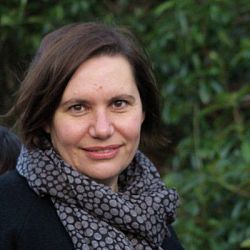 Janet Boddy is Professor of Child, Youth and Family Studies, and Director of the Centre for Innovation and Research in Childhood and Youth (CIRCY) at the University of Sussex. Her research is concerned with child and family lives and with services which aim to support upbringing within and beyond the family, in the UK and internationally. She has a long-standing interest in methodology, and led an ESRC National Centre for Research Methods project, Family Lives and the Environment (see www.novella.ac.uk), devising innovative qualitative methods to study child and family lives in diverse contexts in India and the UK, and working with researchers including Professor Uma Vennam from the Young Lives study. Janet has also worked for many years on research ethics, and most recently, she was part of the working group revising the ESRC Framework for Research Ethics, where she advised on ethics in research with children and vulnerable populations.
Janet Boddy is Professor of Child, Youth and Family Studies, and Director of the Centre for Innovation and Research in Childhood and Youth (CIRCY) at the University of Sussex. Her research is concerned with child and family lives and with services which aim to support upbringing within and beyond the family, in the UK and internationally. She has a long-standing interest in methodology, and led an ESRC National Centre for Research Methods project, Family Lives and the Environment (see www.novella.ac.uk), devising innovative qualitative methods to study child and family lives in diverse contexts in India and the UK, and working with researchers including Professor Uma Vennam from the Young Lives study. Janet has also worked for many years on research ethics, and most recently, she was part of the working group revising the ESRC Framework for Research Ethics, where she advised on ethics in research with children and vulnerable populations. - Dr Hayley MacGregor
Institute of Development Studies, UK -
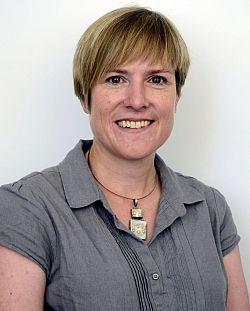 Hayley MacGregor originally trained as a medical doctor in South Africa, and went on to pursue further studies in Social Anthropology at the University of Cambridge. Hayley now co-leads the health and nutrition research cluster at the Institute of Development Studies, where she works as a medical anthropologist with an interest in critical studies of global health and health systems. Hayley’s research interests include the politics of aid and rights discourses in global health; lay and informal health providers; and kinship relations and concepts of care and chronicity in responses to lifelong illness. She is also engaged in interdisciplinary research on disease-environment interactions in the context of zoonotic disease emergence, and on the anthropology of antimicrobial resistance.
Hayley MacGregor originally trained as a medical doctor in South Africa, and went on to pursue further studies in Social Anthropology at the University of Cambridge. Hayley now co-leads the health and nutrition research cluster at the Institute of Development Studies, where she works as a medical anthropologist with an interest in critical studies of global health and health systems. Hayley’s research interests include the politics of aid and rights discourses in global health; lay and informal health providers; and kinship relations and concepts of care and chronicity in responses to lifelong illness. She is also engaged in interdisciplinary research on disease-environment interactions in the context of zoonotic disease emergence, and on the anthropology of antimicrobial resistance.
Global and UK Partners
- Mr Daniel Amoako-Sakyi
Department of Microbiology and Immunology, University of Cape Coast, Ghana -
Daniel Amoako-Sakyi is a Senior Lecturer in the Department of Microbiology and Immunology, School of Medical Sciences, University of Cape Coast, Ghana.
 In the last decade his research has focused on malaria, a blood-borne infectious disease with disproportionate burden among pregnant women and children in low and middle-income countries (LMICs). With funding from the WHO/MIM/TDR, European commission (FP7-HEALTH), Ghanaian government and others Daniel has been able to examine hundreds of blood and DNA samples in search of factors that confer protection against malaria. This line of research often produces interesting blood narratives: haemoglobinopathies and malaria, severe malarial anaemia, anaemia in pregnancy, and interethnic differences in susceptibility to blood related diseases are notable examples.
In the last decade his research has focused on malaria, a blood-borne infectious disease with disproportionate burden among pregnant women and children in low and middle-income countries (LMICs). With funding from the WHO/MIM/TDR, European commission (FP7-HEALTH), Ghanaian government and others Daniel has been able to examine hundreds of blood and DNA samples in search of factors that confer protection against malaria. This line of research often produces interesting blood narratives: haemoglobinopathies and malaria, severe malarial anaemia, anaemia in pregnancy, and interethnic differences in susceptibility to blood related diseases are notable examples. The narratives Daniel will bring to this network are from the perspective of cytokines, immunoglobulins, and genetic mutations — but beyond the biomedical narratives on blood, he hopes to gain further insight into other blood narratives from experts in the network. Daniel's collaborators had previously been biomedical scientists but a recent collaboration with anthropologists and social scientists on a Wellcome Trust funded project has reaffirmed his conviction that meaningful research should be problem-driven, multidisciplinary and collaborative. The narrating blood network typifies these ideals and Daniel looks forward to working with an international and multidisciplinary team to develop novel analytical and methodological approaches to address the burden of blood-related conditions in LIMCs.
- Kingsley Kwadwo Asare Pereko
Department of Community Medicine, University of Cape Coast, Ghana -
Kingsley is a community nutrition expert and a nutrition researcher with professional expertise in public health management (nutrition and child survival).
His research has focused on community based nutrition programmes and interventions in addressing maternal and child malnutrition, micronutrients and nutrition and non-communicable diseases. He has previously worked on the multimicronutrient supplementation follow-up study and the community management of acute malnutrition evaluation the of Helen Keller Internation, Niger, West Africa. He has also collaborated with the Rochester Institute of Technology, NY, USA on the Multifocal Assessment of Anaemia related Programme Gaps and Implementation Challenges in Ghana research.
Currently, he is writing up on the Solanum torvum intake and haemoglobin levels of pregnant women in the bid to understanding the varied ways pregnant women improve their haemogloblin status. Kingsley currently serves as the President of Ghana Academy of Nutrition and Dietetics a group with strong focus toward improving nutrition in Ghana. He also serves the Ghana Red Cross Society which is a key ally in the implementation of maternal and child nutrition and health programmes in Ghana.
He has in the past supported the society as a health advisor on varied health related interventions. His expertise and experiences in nutrition and public health research in general would contribute towards understanding the narrative of anaemia. - Emilomo Ogbe
Founder, Aise Consulting Group, Nigeria and Belgium -
- Ms Vasudha Chakravarthy
Co-founding partner at Development Solutions, India -
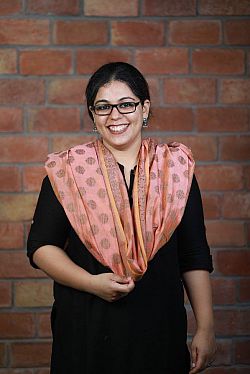 Vasudha Chakravarthy, a co-founding partner at Development Solutions, has for over a decade worked on issues of health systems, reproductive and sexual health, nutrition, gender, and child protection, having led and managed research and evaluation assignments. Currently, she is leading a quality audit of a community-based program to reduce neonatal deaths in an eastern state in India, and the evaluation of digital interventions on the sexual and reproductive health of young persons. She recently led a study to assess the impact of Covid-19 on availability and access to health and nutrition services in five states. She has, in the past, been part of the evaluation and assessment studies of Government health programs on maternal and adolescent health. Vasudha holds a master's degree in Public Health and was one of ten fellows, part of the Maternal Health Young Champions program of the Maternal Health Taskforce, Harvard School of public health.
Vasudha Chakravarthy, a co-founding partner at Development Solutions, has for over a decade worked on issues of health systems, reproductive and sexual health, nutrition, gender, and child protection, having led and managed research and evaluation assignments. Currently, she is leading a quality audit of a community-based program to reduce neonatal deaths in an eastern state in India, and the evaluation of digital interventions on the sexual and reproductive health of young persons. She recently led a study to assess the impact of Covid-19 on availability and access to health and nutrition services in five states. She has, in the past, been part of the evaluation and assessment studies of Government health programs on maternal and adolescent health. Vasudha holds a master's degree in Public Health and was one of ten fellows, part of the Maternal Health Young Champions program of the Maternal Health Taskforce, Harvard School of public health.The partnership with the blood narratives fits very well with our organisational vision. We bring in significant experience of work on sexual and reproductive health and menstrual health to the partnership, and we hope to gain from other's experience to inform our work.
Development Solutions (www.devsolutions.org), was established in 2014, as a social research and consulting firm. The organization has undertaken research, monitoring, and evaluation assignments on issues of health, education, livelihood, and social inclusion. The organization works with Development Partners, UN Agencies, Academic Organizations, civil society, and Corporate Sector. It has delivered over 60 assignments. Development Solutions and its team members have undertaken several assignments on issues of sexual and reproductive health. This includes studies and assessments on issues of service delivery, social marketing, knowledge, attitude, and practices, evaluation of health interventions, programs, and capacities of the state technical resource agencies for health.
Development Solutions is a founding member of the Menstrual Health Alliance of India (MHAI). As a co-lead on advocacy, it focusses on standards for menstrual products, informed choice in menstrual products, waste management, integration with SRH, and WASH. It is currently undertaking a research study on understanding the acceptability of menstrual cups amongst Indian women with the University of Liverpool, Tata Trusts, and the London School of Hygiene and Tropical Medicine. Development Solutions is also developing the content for the integration of menstrual health and gender into a comprehensive life skills resource for young girls.
- Dr Sangeeta Chattoo
Department of Health Sciences, University of York, UK -
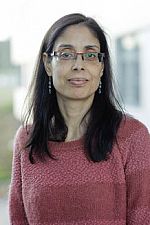 Sangeeta Chattoo is a Senior Research Fellow in the Department of Health Sciences at the University of York. Her main areas of research interest and expertise relate to inequalities and health, race, ethnicity, citizenship and public policy; reproductive technologies, genetics and global health governance; South Asia (India); embodiment, risk, and resilience; family, kinship, gender and caring; and Ethnographic and biographical methods. Sangeeta is the Principle Investigator of 'Inherited blood disorders, globalisation and the promise of genomics: an Indian case-study,' funded by the ESRC.
Sangeeta Chattoo is a Senior Research Fellow in the Department of Health Sciences at the University of York. Her main areas of research interest and expertise relate to inequalities and health, race, ethnicity, citizenship and public policy; reproductive technologies, genetics and global health governance; South Asia (India); embodiment, risk, and resilience; family, kinship, gender and caring; and Ethnographic and biographical methods. Sangeeta is the Principle Investigator of 'Inherited blood disorders, globalisation and the promise of genomics: an Indian case-study,' funded by the ESRC. - Prof Kate Hampshire
Department of Anthropology, Durham University, UK -
 Kate Hampshire has worked for the past 20 years as a medical anthropologist on health/care issues (including reproductive and adolescent health) in Sub-Saharan Africa. Her recent projects have included understanding how adolescents in Ghana, Malawi and South Africa navigate new digital technologies in relation to healthcare (funded by the ESRC/DFID) and how trust is established in the context of medical uncertainties in Ghana and Tanzania (funded by the Wellcome Trust). Blood plays a key role in many of her research areas (for example, the social construction of ‘menstrual disorders’ and ‘low blood’ in young women).
Kate Hampshire has worked for the past 20 years as a medical anthropologist on health/care issues (including reproductive and adolescent health) in Sub-Saharan Africa. Her recent projects have included understanding how adolescents in Ghana, Malawi and South Africa navigate new digital technologies in relation to healthcare (funded by the ESRC/DFID) and how trust is established in the context of medical uncertainties in Ghana and Tanzania (funded by the Wellcome Trust). Blood plays a key role in many of her research areas (for example, the social construction of ‘menstrual disorders’ and ‘low blood’ in young women). - Ms Ishrat Jahan
Centre of Excellence for Gender and Sexual and Reproductive Health at the James P. Grant School of Public Health, BRAC University -
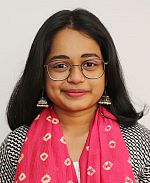 Ishrat Jahan is a research assistant in the Centre of Excellence for Gender and Sexual and Reproductive Health at the James P. Grant School of Public Health, BRAC University. In her current role at a public health research institute, her work focuses on qualitative and ethnographic research at the intersection of gender and health. The current key area of research for her is maternal health in urban, low-income communities (specifically experiences of childbirth and postpartum) and adolescent sexual and reproductive health within the urban slums in Dhaka, Bangladesh.
Ishrat Jahan is a research assistant in the Centre of Excellence for Gender and Sexual and Reproductive Health at the James P. Grant School of Public Health, BRAC University. In her current role at a public health research institute, her work focuses on qualitative and ethnographic research at the intersection of gender and health. The current key area of research for her is maternal health in urban, low-income communities (specifically experiences of childbirth and postpartum) and adolescent sexual and reproductive health within the urban slums in Dhaka, Bangladesh.Ishrat graduated with a Bachelor’s of Social Science in Economics and Anthropology in 2017 from BRAC University. Since 2013, she has also worked a writer and reporter in local newspapers (Daily Star and Dhaka Tribune), and has played a role in organizing Human Library in Dhaka. Ishrat has also has been a part of an anthology of young writers in Dhaka (Disconnect) as well as a literary project (Her Stories) aimed to create greater visibility of female role models in children’s stories.
- Dr Simon Mariwah
Department of Geography and Regional Planning, University of Cape Coast, Ghana -
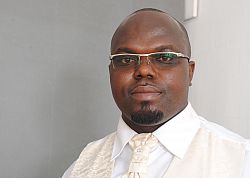 Simon Mariwah is a Health and Development Geographer at the Department of Geography and Regional Planning, University of Cape Coast, Ghana. He has a strong track record of research in Ghana on health-related decision-making and behaviours including Mother-to-Child-Transmission of HIV, and sanitation and health behaviours in Ghana. He has collaborated with both national and international researchers for more than 10 years on a number of funded research projects on understanding how adolescents in Ghana, Malawi and South Africa navigate new digital technologies in relation to healthcare (ESRC/DFID-funded) and how trust is established in the context of medical uncertainties in Ghana and Tanzania (Wellcome Trust-funded).
Simon Mariwah is a Health and Development Geographer at the Department of Geography and Regional Planning, University of Cape Coast, Ghana. He has a strong track record of research in Ghana on health-related decision-making and behaviours including Mother-to-Child-Transmission of HIV, and sanitation and health behaviours in Ghana. He has collaborated with both national and international researchers for more than 10 years on a number of funded research projects on understanding how adolescents in Ghana, Malawi and South Africa navigate new digital technologies in relation to healthcare (ESRC/DFID-funded) and how trust is established in the context of medical uncertainties in Ghana and Tanzania (Wellcome Trust-funded).Blood, which is an important focus of this partnership, plays a key role in many of Simon’s research areas especially the Mother-To-Child-Transmission of HIV in Ghana where teenage mothers are mostly involved, as well as how poor sanitation practices affect adolescents’ school attendance and performance.
Currently, Simon and one of his PhD students are working on livelihoods adaptation strategies among teenage mothers in Ghana. The focus is to examine the role of culture in perpetuating teenage motherhood, and at the same time providing livelihood support or otherwise for the teenage mothers.
- Ms Chhaya Pachauli
Prayas, Rajasthan, India -
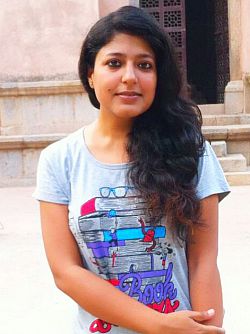 Chhaya Pachauli is a young health activist associated with Prayas, a civil society organization based in Rajasthan (India), with vast interest in activities that are directed towards different aspects of right to health. She graduated with Honours in History and completed Masters with specialization in Rural Development. She has about twelve years of experience of working closely with the community and undertaking advocacy on diverse public health issues such as maternal and child health, malnutrition, quality assurance in health services, creating community based models for monitoring health services etc, thus gaining expertise in community capacity building, health policy advocacy, health systems strengthening, reproductive health rights and access to medicines. She was one of the leading members in the “right to free medicines campaign” which lead to the launch of one of the most successful models of free medicines through public procurement in the year 2011 in Rajasthan. She is now actively leading a campaign against privatization of public health facilities in the state. She has also been coordinating activities of Jan Swasthya Abhiyan (JSA) in Rajasthan, the Indian chapter of global People’s Health Movement (PHM).
Chhaya Pachauli is a young health activist associated with Prayas, a civil society organization based in Rajasthan (India), with vast interest in activities that are directed towards different aspects of right to health. She graduated with Honours in History and completed Masters with specialization in Rural Development. She has about twelve years of experience of working closely with the community and undertaking advocacy on diverse public health issues such as maternal and child health, malnutrition, quality assurance in health services, creating community based models for monitoring health services etc, thus gaining expertise in community capacity building, health policy advocacy, health systems strengthening, reproductive health rights and access to medicines. She was one of the leading members in the “right to free medicines campaign” which lead to the launch of one of the most successful models of free medicines through public procurement in the year 2011 in Rajasthan. She is now actively leading a campaign against privatization of public health facilities in the state. She has also been coordinating activities of Jan Swasthya Abhiyan (JSA) in Rajasthan, the Indian chapter of global People’s Health Movement (PHM).During the course of her work around reproductive health issues, she has been closely looking at various socio cultural dimensions related to anaemia among rural women, a major cause of maternal deaths in India, and at the same time examining government policies and programs to counter the same. She is currently also part of a research study being carried out by the University of York in India to analyse the practices and policies surrounding treatment and ‘prevention’ of sickle cell and thalassaemia. Under the study her focus is on understanding the various interventions being undertaken by civil society organizations around the issue, their modus operandi, strengths, weaknesses and the challenges they encounter.
- Dr Sara Parker
Liverpool John Moores University -
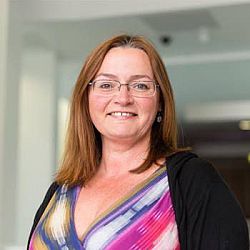 Sara Parker is a Reader in Development Studies and is PI on a BA GCRF Sustainable Development Project entitled 'Dignity Without Danger' Collaboratively analysing stigma and taboos to develop innovative strategies to address menstrual exclusion in Nepal. Passionate about participatory action research with strong research links in Nepal, Sara has been teaching in the School of Social Science since 1994. She completed her PhD on Actionaid's RELECT programme in the remote mountainous village of Sikles in the Annapurna Conservation Area, Nepal. Leading on from this she facilitated a community photography project which led to the publication of a coffee table book entitled 'Our Village Our Life Sikles in Focus' featuring photographs taken by local people. This project challenges stereotypical images of Nepal and focuses on local people representing their own reality. It brought together women's groups. youth group members and teachers and children in the local school and led to funds being raised for locally determined autonomous development projects. Sara's research interests are embedded into her teaching on modules such as World Development, Global Consumption, Methods and International Fieldwork modules. She has led field trips to China, Nepal and Brussels.
Sara Parker is a Reader in Development Studies and is PI on a BA GCRF Sustainable Development Project entitled 'Dignity Without Danger' Collaboratively analysing stigma and taboos to develop innovative strategies to address menstrual exclusion in Nepal. Passionate about participatory action research with strong research links in Nepal, Sara has been teaching in the School of Social Science since 1994. She completed her PhD on Actionaid's RELECT programme in the remote mountainous village of Sikles in the Annapurna Conservation Area, Nepal. Leading on from this she facilitated a community photography project which led to the publication of a coffee table book entitled 'Our Village Our Life Sikles in Focus' featuring photographs taken by local people. This project challenges stereotypical images of Nepal and focuses on local people representing their own reality. It brought together women's groups. youth group members and teachers and children in the local school and led to funds being raised for locally determined autonomous development projects. Sara's research interests are embedded into her teaching on modules such as World Development, Global Consumption, Methods and International Fieldwork modules. She has led field trips to China, Nepal and Brussels. In addition to this Sara has recently founded a Community Interest Company, Fair Connections (Global) CIC, to develop materials and resources for the primary school curriculum on the topic of fair trade (two words!) and Nepal. She has co-written a story book aimed at primary school children in Key Stage one and two, entitled 'Adventures of Fairis a Nepali Frog'. An educational material and resources have been developed by Sara to support this story including a handmade fair trade based 'Global International Fair Trade Story Sack'. This is having a direct impact on the lives of people in Nepal by expanding the market for products made by WFTO members in Nepal. Fair Connections is providing internship opportunities for students at LJMU to develop their employability skills and gain invaluable experiences related to both ethical business and education - wee www.fairconnections.org and also a foundation www.fairconnectionsfoundation.org
- Prof Shobhita Rajagopal
Institute of Development Studies, Jaipur, India -
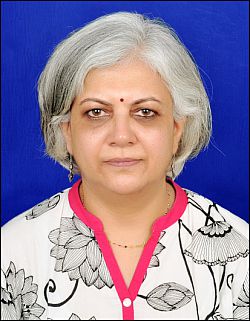 Shobhita Rajagopal is currently working as Associate Professor at the Institute of Development Studies, Jaipur, Rajasthan, India. She has over three decades of experience in social development and policy research, training and policy advocacy. Her research interests include gender, education, health, social exclusion, violence against women, WASH. Committed to furthering Girls education, she has extensively worked in the area of understanding politics of gender in educational processes in Rajasthan and India. She is also actively involved in the women’s movement, NGO and civil society movements in Rajasthan and India.
Shobhita Rajagopal is currently working as Associate Professor at the Institute of Development Studies, Jaipur, Rajasthan, India. She has over three decades of experience in social development and policy research, training and policy advocacy. Her research interests include gender, education, health, social exclusion, violence against women, WASH. Committed to furthering Girls education, she has extensively worked in the area of understanding politics of gender in educational processes in Rajasthan and India. She is also actively involved in the women’s movement, NGO and civil society movements in Rajasthan and India. Her active engagement in the area of women’s rights and empowerment in Rajasthan and in India has helped in understanding the processes of subordination and unequal gender relations that influence women and girls access to crucial resources. Many of these issues were explored in-depth in a recent research on ‘’India’s Champions: Exploring Determinants of Young Women’s Empowerment in Rajasthan’’, in collaboration with the FXB Centre for Health and Human Rights, Harvard University.
Her work has also led to exploring interconnections between education and reproductive health issues especially menstrual hygiene and management among adolescent girls (both school going and non-school going) in rural and urban settings. Menstrual blood and managing menstruation continues to be a taboo subject in the cultural milieu both within Rajasthan and other Indian States. She has recently co-authored an article- Breaking the Silence around Menstruation: Experiences of Adolescent girls in an Urban Setting in India with K. Mathur, in Gender and Development 25.2, 303-317 July 2017.
Current research engagements has focused on gender and WASH issues including menstruation and menstrual hygiene in the context of underserved urban settlements and habitats and experiences of collectivizing adolescent girls around menstruation and menstrual hygiene practices.
- Mr S. Ramanthan
Co-founding partner at Development Solutions, India -
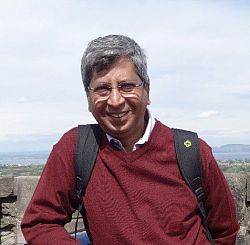 S. Ramanathan is the co-founding partner at Development Solutions. Ram has over 30 years of experience on issues of health, livelihoods, and rural development in India and South Asia. For several years, he led the Integrated Population and Development Project, supported by UNFPA in Odisha, India. In his engagement with the AIDS Prevention and Control Project in Tamil Nadu, India, he supported the Tamil Nadu Health System project of the Government to leverage additional funding from the World Bank. He evaluated the ASHA program in two states for the National Health System Resource Centre – a technical agency of the Ministry of Health and Family Welfare in India. He also led the evaluation of the pilot on community monitoring of the National Rural Health Mission of Government of India. He also taught the students of Master of Public Health in universities in Chennai and Odisha, briefly. He taught health economics, financing, gender, and reproductive health.
S. Ramanathan is the co-founding partner at Development Solutions. Ram has over 30 years of experience on issues of health, livelihoods, and rural development in India and South Asia. For several years, he led the Integrated Population and Development Project, supported by UNFPA in Odisha, India. In his engagement with the AIDS Prevention and Control Project in Tamil Nadu, India, he supported the Tamil Nadu Health System project of the Government to leverage additional funding from the World Bank. He evaluated the ASHA program in two states for the National Health System Resource Centre – a technical agency of the Ministry of Health and Family Welfare in India. He also led the evaluation of the pilot on community monitoring of the National Rural Health Mission of Government of India. He also taught the students of Master of Public Health in universities in Chennai and Odisha, briefly. He taught health economics, financing, gender, and reproductive health.Development Solutions (www.devsolutions.org), was established in 2014, as a social research and consulting firm. The organization has undertaken research, monitoring, and evaluation assignments on issues of health, education, livelihood, and social inclusion. The organization works with Development Partners, UN Agencies, Academic Organizations, civil society, and Corporate Sector. It has delivered over 60 assignments. Development Solutions and its team members have undertaken several assignments on issues of sexual and reproductive health. This includes studies and assessments on issues of service delivery, social marketing, knowledge, attitude, and practices, evaluation of health interventions, programs, and capacities of the state technical resource agencies for health.
Development Solutions is a founding member of the Menstrual Health Alliance of India (MHAI). As a co-lead on advocacy, it focusses on standards for menstrual products, informed choice in menstrual products, waste management, integration with SRH, and WASH. It is currently undertaking a research study on understanding the acceptability of menstrual cups amongst Indian women with the University of Liverpool, Tata Trusts, and the London School of Hygiene and Tropical Medicine. Development Solutions is also developing the content for the integration of menstrual health and gender into a comprehensive life skills resource for young girls.
- Prof Sabina Faiz Rashid
James P. Grant School of Public Health, BRAC University, Bangladesh -
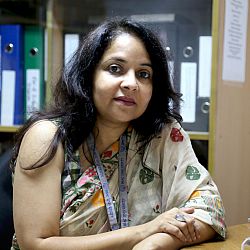 Sabina Faiz Rashid is a medical anthropologist and has been working in Bangladesh since 1993. Previously she was in BRAC at the research division, and she later joined BRAC James P Grant School of Public Health, BRAC University in 2004. She was appointed as Dean in 2013. In addition to the overall leadership and management of the School, she has over 20 years of experience in conducting ethnographic and qualitative research. Her areas of interest are gender, sexual and reproductive health (SRH) and well-being of adolescents, youth, women and men. A key area of her research is on emerging issues in urban areas, and changing gender and social norms of adolescents in urban spaces, with a focus on SRH, gender norms, roles, power relations and urban poverty. Another area of focus is sexuality education for young people, and the sexual health and service delivery needs of sex workers, gay and lesbian, transgender communities and vulnerable populations. Her interests also lie in critically examining public health programs/interventions, and better understanding how social, cultural, and political economic factors influence choices, decisions, and behaviour and the resulting impact on the health and rights of the poorest and most disadvantaged communities.
Sabina Faiz Rashid is a medical anthropologist and has been working in Bangladesh since 1993. Previously she was in BRAC at the research division, and she later joined BRAC James P Grant School of Public Health, BRAC University in 2004. She was appointed as Dean in 2013. In addition to the overall leadership and management of the School, she has over 20 years of experience in conducting ethnographic and qualitative research. Her areas of interest are gender, sexual and reproductive health (SRH) and well-being of adolescents, youth, women and men. A key area of her research is on emerging issues in urban areas, and changing gender and social norms of adolescents in urban spaces, with a focus on SRH, gender norms, roles, power relations and urban poverty. Another area of focus is sexuality education for young people, and the sexual health and service delivery needs of sex workers, gay and lesbian, transgender communities and vulnerable populations. Her interests also lie in critically examining public health programs/interventions, and better understanding how social, cultural, and political economic factors influence choices, decisions, and behaviour and the resulting impact on the health and rights of the poorest and most disadvantaged communities. She established the Centre for Gender, Sexual and Reproductive Health Rights (GSRHR) at the School in 2006, and co-leads the Centre for Urban Equity and Health (CUEH). She is project lead of SHARENET, a virtual platform in Bangladesh that posts online issues on SRHR, LGBT and policy, in partnership with Red-Orange, Bangladesh. She is a member of several international and national organizations including the Coalition for Bodily and Sexual Rights (since 2007), and the Academic Advisory Group of Sexuality and Development, Institute of Development Studies, Sussex, UK (since 2010). She has been serving as an International member of the WHO Secretariat - Health Systems and Policy Analysis, World Health Organization in Geneva, Switzerland from 2014 and is an Advisory Member on the annual Abortion Panels – IUSSP, organized by the Guttmacher Institute, New York. Since 2009, she has been a member of the National Working Group - Bangladesh Health Watch, a multi-stakeholder civil society advocacy and monitoring network established in 2009 and dedicated to improving the health system in Bangladesh.
Dr. Rashid has co-led several multi country research and capacity building grants with international partners including the Institute of Development Studies, University of Sussex, Liverpool School of Tropical Medicine, Liverpool, UK, London School of Hygiene and Tropical Medicine, UK; KIT, Netherlands, University of Amsterdam, Radboud University Netherlands; EngenderHealth, USA, Guttmacher Institute, USA; African Population Health Research Centre, Kenya; CREA, India, TARSHI, India; and with local partners BRAC Gender and Advocacy Unit, Government of Bangladesh, national SRHR NGOs, LGBT networks, and BLAST, a legal aid organization. She has been awarded research and capacity building grants from the World Bank, WHO, USAID, Dutch Government, EU, WHO, IDRC, DFID, and IWHC.
- Prof Sally Theobald
Department of International Public Health, Liverpool School of Tropical Medicine, UK -
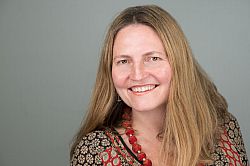 Sally Theobald is a Professor of Social Science and International Health at the Liverpool School of Tropical Medicine in the UK, and a visiting fellow at the Institute of Development Studies, University of Sussex. She has a Masters in Gender and Development, a PhD in Gender, Health and Development and over 20 years’ experience of research, training and partnership on gender equity and health systems strengthening in Africa and Asia. Sally has successfully managed complex multi-million, multi-partner, multi-disciplinary consortia fostering research networks based on trust, innovation and high-level quality outputs. Sally has been invited to participate in/ chair a range of high level meetings such as the World Health Summit and World Health Assembly; and following invite from the WHO actively participated in a range of technical working groups on gender and equity. Sally has wide ranging experience of designing and implementing research projects in health, equity, gender and governance and have worked collaboratively on research for health systems strengthening in HIV, TB, SRH, NTDs, maternal health and health systems in many countries in Africa and Asia, including Ghana and Bangladesh – focus countries for the Narrating Blood network.
Sally Theobald is a Professor of Social Science and International Health at the Liverpool School of Tropical Medicine in the UK, and a visiting fellow at the Institute of Development Studies, University of Sussex. She has a Masters in Gender and Development, a PhD in Gender, Health and Development and over 20 years’ experience of research, training and partnership on gender equity and health systems strengthening in Africa and Asia. Sally has successfully managed complex multi-million, multi-partner, multi-disciplinary consortia fostering research networks based on trust, innovation and high-level quality outputs. Sally has been invited to participate in/ chair a range of high level meetings such as the World Health Summit and World Health Assembly; and following invite from the WHO actively participated in a range of technical working groups on gender and equity. Sally has wide ranging experience of designing and implementing research projects in health, equity, gender and governance and have worked collaboratively on research for health systems strengthening in HIV, TB, SRH, NTDs, maternal health and health systems in many countries in Africa and Asia, including Ghana and Bangladesh – focus countries for the Narrating Blood network.In Bangladesh, through the REACHOUT linking communities and health systems consortium, Sally has worked with Prof Sabina Rashid and others on quality improvements cycles to support delivery of quality menstrual regulation in fast growing urban settlements. This has included qualitative research with clients and formal and informal providers on the experiences, opportunities and constraints in seeking/providing quality menstrual regulation services and the impact of this on clients lives and experiences. In Ghana, through the COUNTDOWN: Calling Time on Neglected Tropical Diseases consortium, Sally is partnering with Prof Margaret Gyapong and others to use novel qualitative research methods to better understand women and girls’ experiences of Female Genital Schistosomiasis, an extremely Neglected Tropical Disease which impacts of women’s health and well-being, sexual health, fertility and vulnerability to sexually transmitted infections. Understanding perceptions of blood is important in uncovering aetiologies of Female Genital Schistosomiasis. Sally is looking forward to multidisciplinary dialogue with colleagues through the Narrating Blood Network.
- Prof Uma Vennam
Sri Padmavati Mahila Visvavidyalam (Women’s University), Tirupati, India -
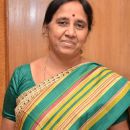 Uma Vennam is Rector and Pro-Vice-Chancellor of SPMVV, the Women’s University in Tirupati. She is a Professor of Social Work at SPMVV and leads the Young Lives qualitative research in India. Previously she has been involved in various projects dealing with rural livelihoods and poverty alleviation, HIV/AIDS, child labour and children’s work, and trafficking of women and children, working with various international agencies including DFID, UNICEF. and the World Bank. Uma has an MA in Social Work from the Tata Institute of Social Sciences Bombay and a PhD from the University of East Anglia, UK.
Uma Vennam is Rector and Pro-Vice-Chancellor of SPMVV, the Women’s University in Tirupati. She is a Professor of Social Work at SPMVV and leads the Young Lives qualitative research in India. Previously she has been involved in various projects dealing with rural livelihoods and poverty alleviation, HIV/AIDS, child labour and children’s work, and trafficking of women and children, working with various international agencies including DFID, UNICEF. and the World Bank. Uma has an MA in Social Work from the Tata Institute of Social Sciences Bombay and a PhD from the University of East Anglia, UK.
Sussex faculty
- Prof Kwame Akyeampong
School of Education, University of Sussex, UK -
 Kwame Akyeampong is Professor of International Education and Development at the Centre for International Education, University of Sussex, UK. Kwame began his academic career in Ghana at the University of Cape Coast. Until his appointment at the University of Sussex in 2004, he served as the Director of the Institute of Education at the University of Cape Coast. He has published widely in international journals on education and development including research on the effect of early marriage timing on women's and children's health in Sub-Saharan Africa and South West Asia. His research interests cover teacher education in the global south, evaluation of large-scale education programmes, policy and practice of education in developing country context. He has particular interest in the political economy of education systems in low-income countries. His research has aimed to offer alternative viewpoints on educational policy and practice based on critical perspectives and experiences of policy makers, school leaders, teachers and students in African education environments. Kwame has worked on numerous international research and evaluation projects with organisations such as UNESCO, JICA, DFID and the World Bank. From 2011 to 2013, Kwame served as senior policy analyst with the Education for All Global Monitoring Report team in UNESCO, Paris.
Kwame Akyeampong is Professor of International Education and Development at the Centre for International Education, University of Sussex, UK. Kwame began his academic career in Ghana at the University of Cape Coast. Until his appointment at the University of Sussex in 2004, he served as the Director of the Institute of Education at the University of Cape Coast. He has published widely in international journals on education and development including research on the effect of early marriage timing on women's and children's health in Sub-Saharan Africa and South West Asia. His research interests cover teacher education in the global south, evaluation of large-scale education programmes, policy and practice of education in developing country context. He has particular interest in the political economy of education systems in low-income countries. His research has aimed to offer alternative viewpoints on educational policy and practice based on critical perspectives and experiences of policy makers, school leaders, teachers and students in African education environments. Kwame has worked on numerous international research and evaluation projects with organisations such as UNESCO, JICA, DFID and the World Bank. From 2011 to 2013, Kwame served as senior policy analyst with the Education for All Global Monitoring Report team in UNESCO, Paris. - Dr Tam Cane
Department of Social Work and Social Care, University of Sussex -
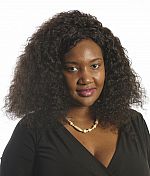 Tam Cane is a lecturer in Social Work, at the University of Sussex. Tam’s research interests are around reproductive health among people affected by HIV as blood-borne infectious diseases. Tam’s Ph.D. looked at the lived experiences of people living with HIV who had accessed assisted reproductive treatment and child adoption services. Her work identified challenges around stigma, discrimination, structural problems, inaccessibility and financial difficulties. Tam is interested in the prevention of horizontal or vertical transmission caused through the exchange of blood and bodily fluids.
Tam Cane is a lecturer in Social Work, at the University of Sussex. Tam’s research interests are around reproductive health among people affected by HIV as blood-borne infectious diseases. Tam’s Ph.D. looked at the lived experiences of people living with HIV who had accessed assisted reproductive treatment and child adoption services. Her work identified challenges around stigma, discrimination, structural problems, inaccessibility and financial difficulties. Tam is interested in the prevention of horizontal or vertical transmission caused through the exchange of blood and bodily fluids. - Dr Elizabeth Mills
School of Global Studies, University of Sussex, UK -
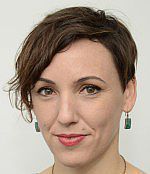 Beth is a Senior Lecturer in Social Anthropology and International Development. Born in South Africa, she has worked extensively in the field of HIV and has published widely on her ethnographic research around HIV-related stigma, gender and sexuality, transnational activism, science and the history of HIV medicine. Her recent research has critiqued the use of art by activist organisations to (ostensibly) advance HIV-positive women's rights, and has explored the discourse of silence as a response to sexual violence in the context of South Africa's Truth and Reconciliation Commission, and Title IX in the United States.
Beth is a Senior Lecturer in Social Anthropology and International Development. Born in South Africa, she has worked extensively in the field of HIV and has published widely on her ethnographic research around HIV-related stigma, gender and sexuality, transnational activism, science and the history of HIV medicine. Her recent research has critiqued the use of art by activist organisations to (ostensibly) advance HIV-positive women's rights, and has explored the discourse of silence as a response to sexual violence in the context of South Africa's Truth and Reconciliation Commission, and Title IX in the United States. - Dr Maria Moscati
School of Law, University of Sussex, UK -
 Maria Moscati is Lecturer in Family Law at the University of Sussex and Co-Director of of the interdisciplinary research Centre for Cultures of Reproduction, Technologies and Health (CORTH). Her research interests lie in the intersection on blood, politics, children's rights, and sexual orientation and gender identity. Before undertaking her doctorate at SOAS she worked for Save the Children Italy where she specialized in children’s rights. Her research projects have been awarded funding by the EU Commission. These included Litigious Love: Same-Sex Couples and Mediation in the European Union, which involved a comparative analysis of the use of mediation for resolving intra-family disputes between same-sex partners. Another project, Bleeding Love: Raising Awareness on Domestic and Dating Violence Against Lesbians and Transwomen in the European Union, has investigated domestic and dating violence against lesbian, transgender and bisexual women in Italy. Along with Dr Peter Dunne (University of Bristol), Maria is currently undertaking SLSA-funded research, which explores the voice of trans children in England on the topic of reforms to the Gender Recognition Act 2004.
Maria Moscati is Lecturer in Family Law at the University of Sussex and Co-Director of of the interdisciplinary research Centre for Cultures of Reproduction, Technologies and Health (CORTH). Her research interests lie in the intersection on blood, politics, children's rights, and sexual orientation and gender identity. Before undertaking her doctorate at SOAS she worked for Save the Children Italy where she specialized in children’s rights. Her research projects have been awarded funding by the EU Commission. These included Litigious Love: Same-Sex Couples and Mediation in the European Union, which involved a comparative analysis of the use of mediation for resolving intra-family disputes between same-sex partners. Another project, Bleeding Love: Raising Awareness on Domestic and Dating Violence Against Lesbians and Transwomen in the European Union, has investigated domestic and dating violence against lesbian, transgender and bisexual women in Italy. Along with Dr Peter Dunne (University of Bristol), Maria is currently undertaking SLSA-funded research, which explores the voice of trans children in England on the topic of reforms to the Gender Recognition Act 2004. - Dr Heike Rabe
Department of Paediatrics, Brighton & Sussex Medical School -
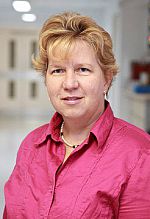
Heike Rabe is a neonatologist at the Brighton and Sussex Medical School, UK who works on delayed cord clamping at birth. The benefits of delayed cord clamping for the babies include improved survival rates, better hemoglobin levels after birth and higher iron status during the first year of life. The World Health Organisation (WHO) has included delayed cord clamping as a routine measure in their guidelines. - Dr Shahaduz Zaman
Department of Global Health and Infection, University of Sussex -
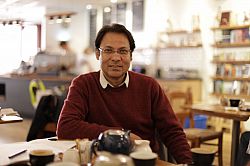 Shahaduz Zaman is a Senior Lecturer at the Brighton Sussex Medical School, Department of Global Health and Infection, University of Sussex. He has an interdisciplinary background with degrees in Medical Anthropology, Public Health and Medicine. He has more than 15 years of experience in conducting research and teaching in global public health. His research interests include hospital ethnography, Socio-cultural aspects of communicable and non-communicable diseases, death dying and end of life, refugee health, role of art in heath interventions, health policy and health systems in low income countries and medical history. His research is ethnographic and qualitative in nature. Shahaduz Zaman conducted research in Bangladesh, India, Nepal, Vietnam, Turkey, Tunisia, Lebanon, and Syria. He has received research grants from ESRC, AHRC, MRC, British Academy and WHO. Shahaduz Zaman was born and brought up in Bangladesh, and started his career with reputed NGO BRAC, Bangladesh as a community health physician in the rural parts of the country. He moved to UK in 2009. Shahaduz Zaman is interested in the interface between medial and social meaning of blood and how global narrative of blood meets and negotiates with local narratives.
Shahaduz Zaman is a Senior Lecturer at the Brighton Sussex Medical School, Department of Global Health and Infection, University of Sussex. He has an interdisciplinary background with degrees in Medical Anthropology, Public Health and Medicine. He has more than 15 years of experience in conducting research and teaching in global public health. His research interests include hospital ethnography, Socio-cultural aspects of communicable and non-communicable diseases, death dying and end of life, refugee health, role of art in heath interventions, health policy and health systems in low income countries and medical history. His research is ethnographic and qualitative in nature. Shahaduz Zaman conducted research in Bangladesh, India, Nepal, Vietnam, Turkey, Tunisia, Lebanon, and Syria. He has received research grants from ESRC, AHRC, MRC, British Academy and WHO. Shahaduz Zaman was born and brought up in Bangladesh, and started his career with reputed NGO BRAC, Bangladesh as a community health physician in the rural parts of the country. He moved to UK in 2009. Shahaduz Zaman is interested in the interface between medial and social meaning of blood and how global narrative of blood meets and negotiates with local narratives.
Associated Members
- Dr Bronwen Gillespie
Independent Researcher (Spain), Online Tutor (Queen Mary University of London) -
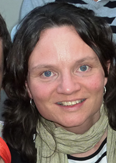 Bronwen Gillespie has a PhD in Social Anthropology from the University of Sussex. Her research draws on Quechua-speaking women’s experience as recipients of state programmes and services in the rural Andes to explore contradictions in public health and social policy. Bronwen’s work on ‘blood’ combines both anthropological research and on-the-ground experience supporting public health nutrition strategies in Peru, developing locally-adapted programs for high rates of anaemia. Her NGO work contributed to the recovery of the traditional Andean practice of making ‘blood charqui’, or blood collected during slaughter, boiled, and conserved through sun-drying, to be added to dishes to increase iron content.
Bronwen Gillespie has a PhD in Social Anthropology from the University of Sussex. Her research draws on Quechua-speaking women’s experience as recipients of state programmes and services in the rural Andes to explore contradictions in public health and social policy. Bronwen’s work on ‘blood’ combines both anthropological research and on-the-ground experience supporting public health nutrition strategies in Peru, developing locally-adapted programs for high rates of anaemia. Her NGO work contributed to the recovery of the traditional Andean practice of making ‘blood charqui’, or blood collected during slaughter, boiled, and conserved through sun-drying, to be added to dishes to increase iron content. - Dr Adom Philogene Heron
Goldsmiths, University of London, UK -
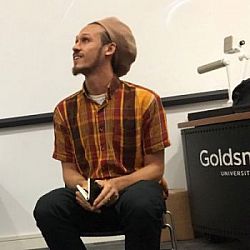 Adom Heron is a Lecturer in the Department of Anthropology at Goldsmiths, University of London. Adom’s research explores issues of gender, kinship, inter-generationality and the life-course in the Caribbean. His paper When “Blood Speaks”: Naming the Father and the ‘Mystics’ of Kinship in Dominica, Lesser Antilles won the 2017 Graduate Student Paper Award from the Council of Anthropology & Reproduction.
Adom Heron is a Lecturer in the Department of Anthropology at Goldsmiths, University of London. Adom’s research explores issues of gender, kinship, inter-generationality and the life-course in the Caribbean. His paper When “Blood Speaks”: Naming the Father and the ‘Mystics’ of Kinship in Dominica, Lesser Antilles won the 2017 Graduate Student Paper Award from the Council of Anthropology & Reproduction. - Dr Ben Kasstan
Department of Anthropology, University of Sussex -
 Ben Kasstan is a Research Fellow in the Department of Anthropology and Co-ordinator of CORTH. Ben's research primarily explores the relation between medical interventions and social worlds, and he has field experience in the UK, Ireland, The Gambia, Israel, Nigeria and Lesotho. His current research role explores reproductive decision-making among families of Bangladeshi, Indian and Pakistani origin in the UK as part of Maya Unnithan's ESRC-funded study. Ben received a Wellcome Trust (Ethics & Society) doctoral studentship (2013-2016) to explore how maternity and infant care can constitute a borderland where ethnic/religious minority groups and the UK state negotiate each other's positions. More broadly Ben has published on autopsy anxieties among those who care for deceased bodies.
Ben Kasstan is a Research Fellow in the Department of Anthropology and Co-ordinator of CORTH. Ben's research primarily explores the relation between medical interventions and social worlds, and he has field experience in the UK, Ireland, The Gambia, Israel, Nigeria and Lesotho. His current research role explores reproductive decision-making among families of Bangladeshi, Indian and Pakistani origin in the UK as part of Maya Unnithan's ESRC-funded study. Ben received a Wellcome Trust (Ethics & Society) doctoral studentship (2013-2016) to explore how maternity and infant care can constitute a borderland where ethnic/religious minority groups and the UK state negotiate each other's positions. More broadly Ben has published on autopsy anxieties among those who care for deceased bodies. - Ms Miranda Marks
Master's Candidate, Department of Anthropology, Universität Leipzig, Germany -
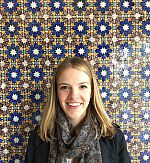 Miranda Marks is a Social Anthropology masters candidate at the Universität Leipzig in Germany, and a former visiting Research Associate at CORTH. Focusing both her undergraduate and graduate work on feminist reproductive and medical anthropology, she is interested in biopolitics, contraception, technology, and gender. She is currently conducting research on the intrauterine device (IUD) and nulliparous women globally under 35’s experiences and contraceptive decision making. Through in-depth narratives, she is looking at how the newly emerging group of IUD patients and users engage with the device. Blood, through purposeful amenorrhea and menstrual stigma, and the medicalization of women’s bodies are two dominant emerging themes.
Miranda Marks is a Social Anthropology masters candidate at the Universität Leipzig in Germany, and a former visiting Research Associate at CORTH. Focusing both her undergraduate and graduate work on feminist reproductive and medical anthropology, she is interested in biopolitics, contraception, technology, and gender. She is currently conducting research on the intrauterine device (IUD) and nulliparous women globally under 35’s experiences and contraceptive decision making. Through in-depth narratives, she is looking at how the newly emerging group of IUD patients and users engage with the device. Blood, through purposeful amenorrhea and menstrual stigma, and the medicalization of women’s bodies are two dominant emerging themes.
*Banner: White blood cells - Cosmos Magazine
